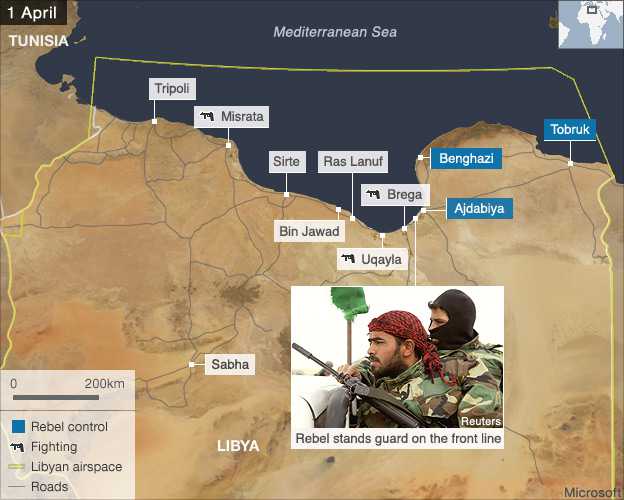By MARC CHAMPION in Istanbul and CHARLES LEVINSON in Benghazi, Libya
Turkey’s Prime Minister Recep Tayyip Erdogan on Thursday came closer than before to calling for Col. Moammar Gadhafi’s removal from power, amid wide criticism over Ankara’s Libya policy.
“A comprehensive democratic transformation process that takes into account the legitimate interests of Libyan people should start immediately. The aim of this process should be to settle constitutional order that people freely elect their rulers,” Mr. Erdogan said in televised remarks.
But the comments weren’t well received in Libya, where Turkey’s strong reputation in the Middle East has been taking a beating.
“It’s not enough,” said rebel spokeswoman Iman Bugaighis. “We need action, not talk. The street is boiling and no one can understand the Turkish position.”
Rebel leaders have complained openly in recent days about Turkey’s reticence in directly tackling the Gadhafi regime, regarding Ankara a key obstacle to their efforts to goad the international community to intervene more decisively on their behalf.
Turkey’s hesitant, and sometimes contradictory, approach to the Libyan uprising has contrasted strongly with its early calls for Egyptian President Hosni Mubarak to resign in February and has triggered criticism in some Arab media.
Rebel leaders Thursday also accused Ankara of providing food aid to loyalist soldiers and obstructing NATO’s air campaign at the risk of Libyan lives.
At a news conference in Bengahzi on Thursday, a senior rebel medical official waved in the air a military-ration food packet, which he said was recently found amid the supplies carried by captured loyalist soldiers on the front lines.
The packet had Turkish labels on it and a production date that indicated it was manufactured in January. The official said that suggested Ankara was helping to supply the forces of Col. Gadhafi.
“We found this food with Gadhafi soldiers,” the medical official, Dr. Gebril Hewadi, said. “It’s newly produced and it’s from Turkey. I think there is a special agenda between Col. Gadhafi and the Turkish government.”
“While our civilians are being killed, Turkey is distributing food to Gadhafi’s militias,” rebel spokeswoman Iman Bugaighis added. “Turkey needs to stand on the right side of history.”
It wasn’t possible to verify the claim or to determine how the Turkish food might have ended up with Gadhafi troops.
On Tuesday, a rebel aid ship carrying food, medicine and weapons from Benghazi to Misrata was intercepted in international waters by a Turkish naval vessel and forced to turn around, according to rebel officials and journalists on board the boat. Turkish warships are stationed off the coast to enforce an arms embargo on Libya.
Much of the rebel anger appears to stem from a belief that Turkey is behind what they perceive as NATO reluctance to provide air cover to rebels troops since the Western military alliance took over command of the operation from the U.S. “The Libyan people hold Turkey responsible for that,” said Hafiz Abdel Goga, a member of the rebels’ provisional governing body, the Transitional National Council.
Turkey is a NATO member and was vocal is seeking transfer of the air operation’s command from the U.S. and French-led coalition that first imposed the Libyan no-fly zone.
Coalition jets also attacked loyalist columns as they approached opposition centers, something the rebels say NATO has been hesitant to do.
“As in all NATO operations, a commander was assigned to this operation and that commander is an American. There is no way that one country can interfere with that commander’s operational decisions,” said Selcuk Unal, a spokesman for the Turkish foreign ministry, denying the charge.
Turkey initially rejected the idea of any NATO military intervention in Libya, but has since appeared to backpedal as events on the ground changed and it found itself diplomatically isolated. Turkish companies snapped up more than $7 billion in construction contracts in Libya over the past two years and Turkish leaders had built a strong relationship with the Gadhafi regime.
“This is the first time Turkish foreign policy in the region is facing a real challenge where it has to choose… Gadhafi has to go and the question is will Turkey join in pushing with its NATO allies or not?” said Huseyin Bagci, head of the international relations program at the Middle East Technical University in Ankara.
Turkish policy has led to criticism from some media in Arab countries, such as Egypt and Qatar. A column in Qatar’s Al-Watan newspaper on Thursday accused Turkey of “wasting time” with its Libyan negotiation efforts, despite knowing that “there is no room at all for gathering the [opposition] National Council and Al-Qadhafi’s family at one table.”
Qatar has spearheaded Arab support for military intervention in Libya.
Mr. Unal dismissed an anti-Turkish demonstration by Libyan doctors in Benghazi on Wednesday as “a small group,” and defended Turkey’s more cautious diplomacy. Turkish officials also have questioned privately whether Wednesday’s demonstration was spontaneous, noting that just hours earlier a Turkish ship had collected hundreds of wounded rebels for evacuation and treatment in Turkey.
That aid effort only appeared to trigger more opposition anger, however. Rebel officials said the ship was ill-equipped, and wounded patients received no medical treatment, forcing rebels in Benghazi to pull their own doctors away from hospitals to treat wounded on the boat. Turkey said the ferry had a medical staff of 15 on board including eight doctors, and ambulances and extensive medical aid.
Turkey later tried to send an aide ship to Benghazi with food and medicine, but the rebel leadership turned it away. “We said thank you very much and refused to accept it,” said Ms. Bugaighis, the rebel spokeswoman. “We don’t accept aid from governments that refuse to help stop the killing of our people.”
—Margaret Coker contributed to this article.
Write to Marc Champion at [email protected] and Charles Levinson at [email protected]

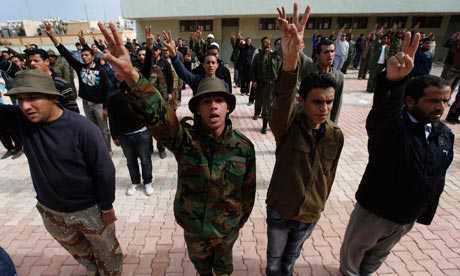
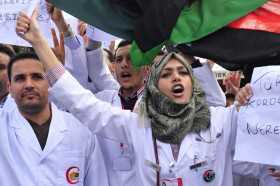

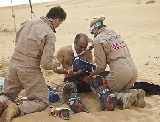

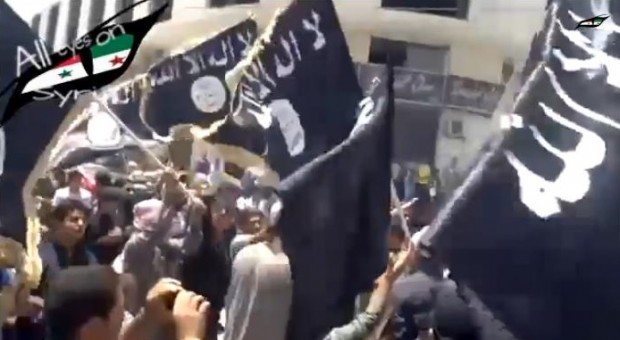


 Twelve-year-old Muhammad was peppered with shrapnel when a rocket exploded near him
Twelve-year-old Muhammad was peppered with shrapnel when a rocket exploded near him As the ship arrived in Benghazi several hundred rebel supporters waved and cheered on the quayside
As the ship arrived in Benghazi several hundred rebel supporters waved and cheered on the quayside
